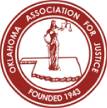
Motorcycle accidents are a tragic and all too common occurrence on the roadways. These accidents often result in serious injuries and, unfortunately, even death. When a loved one is killed in a motorcycle accident due to someone else’s negligence, the surviving family members have the right to pursue a wrongful death claim.
Defining Wrongful Death in a Motorcycle Accident
A wrongful death claim arises when an individual is killed due to another party’s negligence, recklessness, or intentional misconduct. In the context of a motorcycle accident, wrongful death may result from various circumstances, such as:
Driver Negligence
The at-fault driver may be held responsible for the motorcyclist’s death if their careless or reckless actions, such as speeding, distracted driving, or driving under the influence, directly contributed to the accident.
Defective Motorcycle Parts
Manufacturers or distributors of defective motorcycle components can be held accountable if their products malfunction and lead to a fatal crash.
Poor Road Conditions
Government agencies or contractors may be liable if they fail to maintain safe roadways, leading to a motorcycle accident that results in wrongful death.
Our Team Is Here To Assist You Every Step Of The Way.
SPEAK TO AN ATTORNEY TODAYThe Legal Process of a Wrongful Death Claim
According to the National Highway Traffic Safety Administration, in 2019, 5,014 motorcyclists were killed in motor vehicle crashes. Filing a wrongful death claim involves several essential steps, including:
Identifying the Responsible Parties
Determining who is responsible for the wrongful death is crucial in the legal process. This may involve gathering evidence, interviewing witnesses, and consulting with experts.
Establishing a Legal Relationship
The person filing the claim, usually a close family member, must demonstrate their legal standing to bring the wrongful death action on behalf of the deceased individual.
Proving Negligence
To succeed in a wrongful death claim, the plaintiff must prove that the responsible party’s negligence directly caused the death of their loved one. This involves establishing the four elements of negligence: duty, breach, causation, and damages.
Calculating Damages
The plaintiff must determine the monetary value of their damages due to their loved one’s death. This may include lost wages, funeral expenses, and loss of companionship, among other damages.
Filing the Lawsuit
The wrongful death claim must be filed within the statute of limitations, which varies by state. It is crucial to consult an attorney to ensure the lawsuit is filed correctly and within the prescribed time frame.
Compensation and Damages in Wrongful Death Cases
According to the Insurance Information Institute (III), in the last reporting year, 83,000 motorcyclists were injured in motor vehicle crashes in the United States. The damages awarded in a wrongful death claim may include various categories to address the case’s financial, emotional, and punitive aspects. A comprehensive understanding of these damages can help families and their legal representatives seek the compensation they deserve:
Economic Damages
These are quantifiable financial losses resulting from the victim’s death, which can include several components:
- Medical Bills: The cost of any medical treatment the deceased received due to the accident, including hospitalization, surgeries, medications, and rehabilitation services.
- Funeral Expenses: The cost of burial or cremation services, as well as any associated expenses such as a casket, headstone, memorial service, or transportation of the body.
- Lost Wages and Benefits: The income that the deceased would have earned had they survived, including projected raises and bonuses, as well as the value of any lost benefits such as health insurance, pension, or retirement contributions.
Non-Economic Damages
These damages compensate the surviving family members for the intangible losses they have experienced due to their loved one’s death. Non-economic damages can encompass a range of emotional and relational impacts:
- Pain and Suffering: The mental anguish and emotional distress experienced by the surviving family members due to their loved one’s untimely death.
- Loss of Companionship: The loss of love, support, guidance, and companionship the deceased provided to their family members.
- Loss of Consortium: The loss of intimacy and affection experienced by the deceased’s spouse or partner due to their death.
- Loss of Parental Guidance: The loss of guidance, care, and nurturing that the deceased would have provided their children.
Punitive Damages
The court may award punitive damages for gross negligence or malicious conduct and to deter similar behavior in the future. Factors that may influence the decision to award punitive damages include:
- The Severity of Negligence: The more egregious the defendant’s conduct, the more likely the court is to award punitive damages.
- The Defendant’s Financial Status: Punitive damages are often based on the defendant’s financial resources, as the goal is to impose a penalty that is both meaningful and proportionate to their wealth.
- The Degree of Harm Caused: The extent of the harm suffered by the family, including the nature and duration of the deceased’s pain and suffering before their death, may impact the decision to award punitive damages.
The Importance of Legal Representation
Hiring an experienced wrongful death attorney is crucial in navigating the complex legal process and ensuring the family receives the compensation they deserve. A skilled attorney will offer a comprehensive range of services, providing invaluable support throughout the legal journey:
Investigate the Accident
The attorney will thoroughly investigate the accident’s circumstances, gather evidence, and identify all liable parties. This process may involve collaborating with accident reconstruction experts, interviewing witnesses, collecting police reports, and analyzing the crash scene. By meticulously examining all aspects of the incident, the attorney will be better equipped to establish liability and build a strong case.
Build a Strong Case
By leveraging their legal expertise and knowledge, the attorney will build a solid case that establishes the defendant’s negligence and demonstrates the extent of the damages suffered by the surviving family members. This involves developing a comprehensive understanding of the applicable laws and regulations and preparing a compelling narrative to present in negotiations or court.
Negotiate with Insurance Companies
Insurance companies often attempt to settle claims for less than their true value. An experienced attorney will negotiate on behalf of the family to ensure they receive fair compensation for their loss. The attorney will use their understanding of the insurance industry and the evidence gathered during the investigation to counteract lowball settlement offers and secure an outcome that reflects the full extent of the family’s damages.
Represent the Family in Court
If a fair settlement cannot be reached through negotiation, the attorney will represent the family, presenting a compelling case to the judge and jury. This involves crafting persuasive arguments, examining and cross-examining witnesses, and presenting evidence highlighting the defendant’s negligence and the family’s suffering. The attorney’s courtroom experience and skill in advocacy can significantly impact the case outcome.
Provide Emotional Support
A wrongful death attorney understands the immense emotional toll that losing a loved one can have on a family. They can provide support and guidance during this difficult time, allowing the family to focus on healing and recovery. This may involve connecting the family with grief counselors, support groups, and other resources to help them cope with their loss.
Handle Administrative Tasks
The legal process involves numerous administrative tasks, such as filing paperwork, meeting deadlines, and responding to discovery requests. An attorney will manage these tasks on the family’s behalf, ensuring the case proceeds smoothly and promptly.
Monitor Changes in Legislation
Laws surrounding wrongful death claims can change over time. An experienced attorney will stay informed of any relevant legislative changes and adjust their legal strategy accordingly, maximizing the family’s chances of success.
Hiring a skilled wrongful death attorney is essential for families seeking justice and compensation following losing a loved one in a motorcycle accident. Their expertise, resources, and commitment to the family’s well-being can make a significant difference in the outcome of the case and provide much-needed support during a challenging time. Contact BDIW Law for more information.








